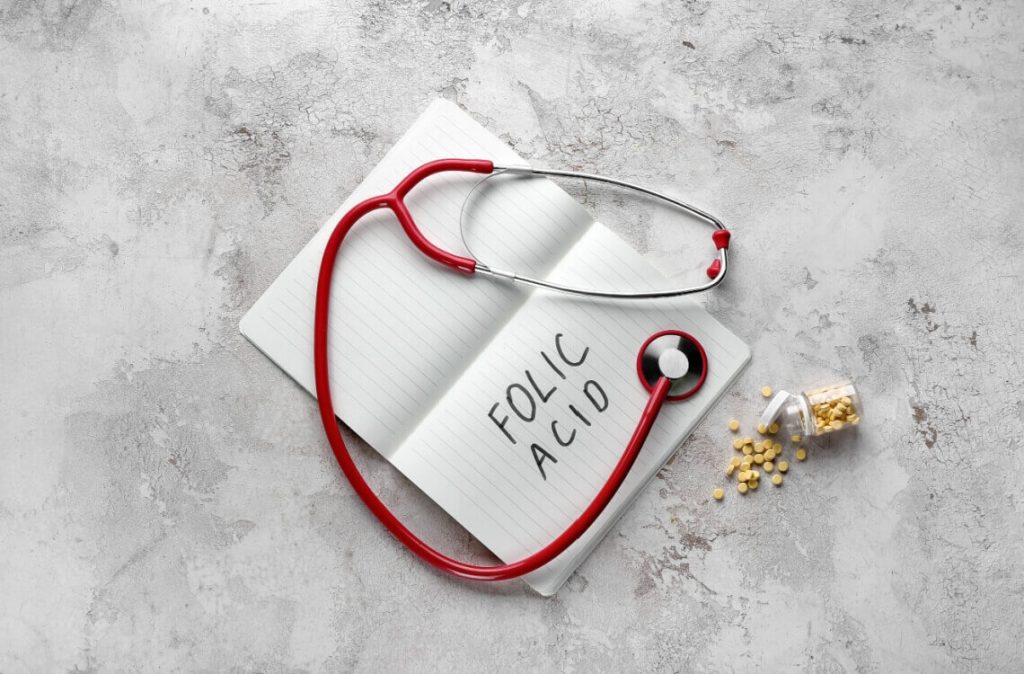Folic acid is one of the most important nutrients for pregnant mothers.
Without enough of it, babies in the womb can develop all sorts of birth defects.
We sat down with pharmacist, Nazatul Amira Hamzah to learn more about folic acid and its crucial role in supporting a healthy pregnancy.
She is a qualified pharmacist with 10 years of experience in pharmacy practice involving both hospital and community settings.
She currently holds the position of Pharmacist and Key Account Manager at Primabumi Sdn. Bhd.
Here’s her insight on this nutrient, that all mothers (prospective or expectant) need to know.
Q1: What is folic acid?
Folic acid (also known as folate) is the synthetic version of vitamin B9.
We can also get this nutrient naturally from certain types of foods, such as leafy vegetables, whole-meal breads, citrus fruits, yeast, and liver.
Q2: What does folic acid do in the body?
Folic acid plays many essential roles in the normal development and functioning of cells in the body, including:
- aids in tissue growth and cell function
- works with vitamins B12 and C to support the body’s production, breakdown and utilisation of proteins
- contributes to the production of red blood cells
- it helps body cells produce and repair DNA and RNA, the building blocks of the human body that carry genetic information
Q3: Why is taking folic acid important for pregnancy?
For the healthy development of the unborn baby, your body needs more folic acid to ensure proper cell growth and reproduction.
Lack of this nutrient, especially during the early stages of pregnancy, could lead to a major birth defect known as a neural tube defect.
The most common neural tube defects are anencephaly (underdeveloped brain and incomplete skull) and spina bifida (incomplete closure of the spinal cord).
Q4: How do I know that I’m at risk of folic acid deficiency?
If you get a balanced diet, practise a healthy lifestyle, and do not have chronic (long-term) health issues, your risk for folic acid deficiency is most probably low.
However, you may have a higher risk of developing a deficiency, particularly during pregnancy, if you:
- suffer from anaemia or have a history of anaemia
- had a child or had a family history of neural tube defects
- take drugs known to interfere with the metabolism of folate, such as anticonvulsants, infertility treatments, cancer, and an analog of vitamin A
- experience gut problems that affect nutrient absorption, such as irritable bowel disorder (IBD) or coeliac disease
- have an issue of chronic or overconsumption of alcohol
Q5: When should I start taking folic acid and how long should I take it?
You should start taking folic acid ideally 3 months before getting pregnant and during the first 12 weeks of pregnancy.
Taking supplements is crucial during the first trimester.
However, your doctor may advise you to continue taking it throughout pregnancy and breastfeeding, particularly if you are anaemic or at risk of anaemia.
Q6: What is the recommended dosage of folic acid for pregnancy?
Experts often recommend a minimum daily dose of 400 micrograms (0.4 mg) for both attempting to conceive and during the first trimester (the first 12 weeks of pregnancy).
However, it is common practice in Malaysia to prescribe a daily dose of 5 mg to all pregnant women, regardless of their history of anaemia.
Q7: How do I take folic acid?
You can take a folic acid tablet before or after meals.
Swallow the whole tablet with a drink of water.
Q8: Can I take my folic acid with my medications or other dietary supplements?
Folic acid may interact with other medicines and supplements, interfering with their absorption or therapeutic actions. The reverse is also true.
Tell your doctor or pharmacist if you are taking the following medication alongside your supplement:
- methotrexate (a medicine used to treat psoriasis, rheumatoid arthritis, Crohn’s disease, and some cancers)
- epilepsy medications such as phenytoin and phenobarbitone
- antibiotics (medicines that are used to fight off bacterial infections)
- anticancer drugs such as capecitabine, fluorouracil, and tegafur
- any health supplements that contain zinc
Some multivitamins and iron supplements may also contain folic acid.
Consult your healthcare provider to determine whether taking more, on top of those other supplements, is advisable.
This is to ensure you do not exceed the recommended daily intake.
Q9: I heard that folic acid may cause side effects. Is this true?
The side effects of folic acid are not common and often mild and temporary.
However, some people may experience nausea, loss of appetite, and bloating.
Talk to your healthcare professional if you have any concerns.
Disclaimer: The information provided in this article is for informational purposes only and should not be considered as medical advice from Motherhood. For any health-related concerns, it is advisable to consult with a qualified healthcare professional or medical practitioner.
For more insightful stories and fun recipes, stay tuned to Motherhood Story!
